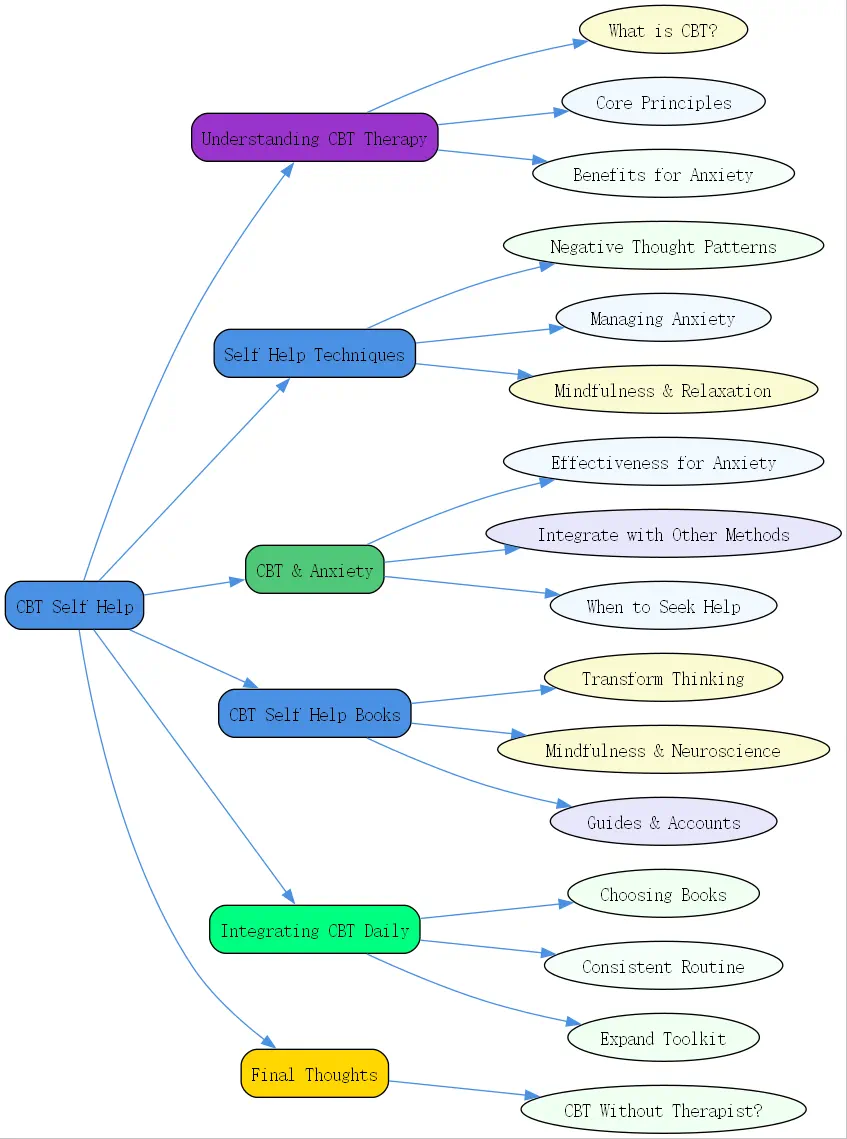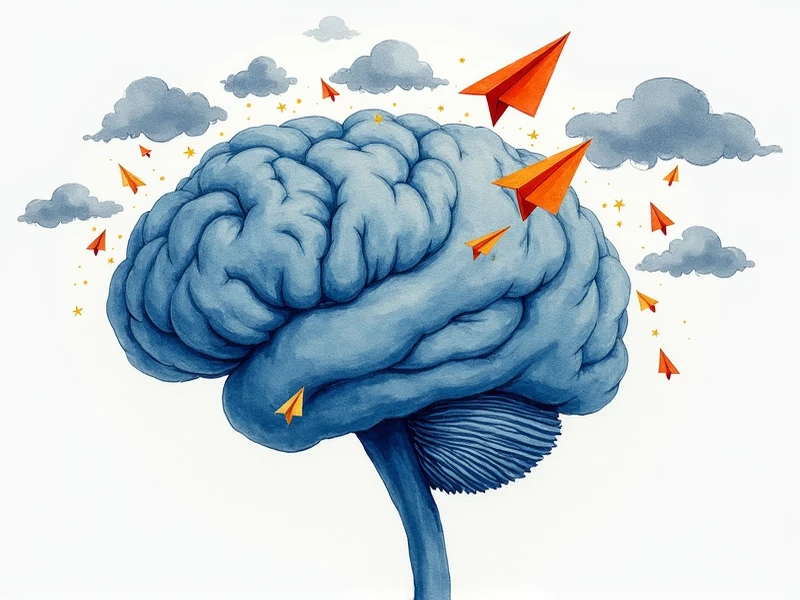CBT Self Help: Your Guide to Cognitive Behavioral Therapy at Home
Cognitive Behavioral Therapy (CBT) is transforming the way we approach mental health. Whether you’re looking to reduce stress, manage anxiety, or simply foster personal growth, CBT self help offers actionable strategies that you can implement at home. In this article, we’ll dive deep into understanding CBT therapy self help, practical techniques, and the best resources to transform your mental well-being.
Understanding CBT Therapy Self Help

CBT is a structured, evidence-based approach designed to help individuals identify and challenge negative thinking patterns while fostering healthier behaviors. But why is CBT therapy self help so effective?
What is CBT and How Can it Help You?
CBT examines the interplay between your thoughts, emotions, and behaviors. It’s based on the core principle that our perceptions of situations—not the situations themselves—shape how we feel and act. Through self-help strategies, you can combat patterns of distorted thinking that fuel anxiety, stress, or even depression.
Whether you’re dealing with mild stress or searching for coping mechanisms for generalized anxiety, CBT self help gives you the tools to take control of your mental health journey.
The Core Principles of Cognitive Behavioral Therapy for Self-Improvement
CBT revolves around several foundational principles:
- Automatic Thoughts: Identifying recurring, negative thought patterns that influence how you feel and behave.
- Cognitive Restructuring: Replacing irrational beliefs with balanced, realistic perspectives.
- Behavioral Activation: Encouraging proactive steps to break cycles of avoidance or depression.
By mastering these skills, you’ll uncover effective ways to deal with daily challenges.
Benefits of Using CBT Techniques for Anxiety and Stress Reduction
Can CBT help with anxiety? Absolutely. Research consistently highlights CBT as one of the most effective tools for managing stress and anxiety. The benefits include:
- Reduced physical symptoms like rapid heartbeat or shallow breathing.
- Improved problem-solving skills for tackling challenges.
- A framework for practicing self-awareness and staying grounded.
It’s no wonder many people turn to CBT self help for lasting relief.
Self Help CBT Techniques You Can Start Today
CBT isn’t just about understanding the theory—it’s about action. These techniques are simple, but they can drastically improve your mental well-being over time, whether you’re working independently or using them alongside resources like CBT self help books.
Identifying and Challenging Negative Thought Patterns
The first step is to recognize distorted thinking. Negative thoughts like “I’ll never succeed” or “I always fail” can trigger stress and hold you back. Use these steps:
- Catch the Thought: Pause and list repetitive negative thoughts.
- Examine the Evidence: Is this thought a fact or just an assumption?
- Reframe the Narrative: Replace it with a positive, actionable statement like: “I’m capable of learning.”

Challenging these unhelpful patterns forms the backbone of self help CBT techniques.
Practical Exercises for Managing Anxiety with CBT
There are practical CBT exercises you can practice daily:
- Thought Journals: Write down anxious thoughts and analyze whether they’re based on reality.
- Exposure Exercises: Gradually face fears or anxieties in a controlled way (e.g., confront small social situations if social anxiety is a concern).
- Behavioral Experiments: Test anxious predictions (e.g., challenge the thought “I’ll embarrass myself” by taking small public steps).
By taking small, consistent actions, you’ll dismantle the anxiety’s hold over your life.
Mindfulness and Relaxation Techniques for CBT Self Help
Mindfulness perfectly complements CBT’s core principles. Techniques like deep breathing or grounding exercises can steady your mental landscape during overwhelming moments. To explore more, visit can self awareness help in managing stress and anxiety.
Pairing mindfulness with CBT forms a powerful toolkit for self-growth.
Can CBT Help With Anxiety? Exploring Self-Help Options

Many people wonder: Can CBT help with anxiety? The answer lies in both its adaptability and proven methods.
Effectiveness of CBT for Various Anxiety Disorders
CBT has been shown to treat a range of anxiety disorders, including:
- Generalized Anxiety Disorder (GAD): This includes constant worrying about future events.
- Social Anxiety Disorder: Overcoming fear of judgment or embarrassment.
- Panic Disorders: Managing panic attacks with tools to diffuse physiological symptoms.
When tailored to individual needs, CBT is transformative.
Integrating CBT Self Help with Other Treatment Methods
For some, combining CBT self help techniques with meditation or even professional counseling can amplify results. Approaches like journaling, physical activity, or even dietary changes can provide complementary benefits.
When to Seek Professional Help Alongside CBT Self Help
It’s important to recognize when anxiety moves beyond self-help. If you struggle with persistent symptoms that impact your daily life, reach out to a therapist. Self-help is great, but professional guidance can elevate your growth exponentially.
15 Best CBT Self Help Books for Managing Stress and Anxiety
Books offer structured guidance, relatable stories, and proven exercises to take your CBT practice to the next level.
Top CBT Self Help Books to Transform Your Thinking
1. “”Feeling Good: The New Mood Therapy”” by David D. Burns Focused on cognitive restructuring, this book helps readers combat irrational beliefs and distorted thoughts effectively.
2. “”The Anxiety and Phobia Workbook”” by Edmund Bourne A great starting point for understanding various anxiety types, this workbook includes tailored exercises for lasting relief.
3. “”The Worry Trick”” by David A. Carbonell Learn efficient ways to combat excessive worry and how your mind perpetuates these cycles.

Mindfulness and Neuroscience-Based CBT Self Help Books
1. “”The Stress-Proof Brain”” by Melanie Greenberg This book combines CBT with mindfulness and neuroplasticity techniques to physically rewire your brain for resilience.
2. “”Mindfulness for Stress Management”” by Robert Shaker A practical guide with 50 techniques to incorporate mindfulness into your daily life.
3. “”Rewire Your Anxious Brain”” by Catherine M. Pittman and Elizabeth M. Karle Focuses on the neuroscience behind anxiety and provides strategies that target the brain’s amygdala and cortex.
Practical Guides and Personal Accounts of CBT Self Help
1. “”Why Has Nobody Told Me This Before?”” by Dr. Julie Smith This approachable guide shares relatable anecdotes and self-help strategies for coping with stressors.
2. “”Hardcore Self-Help”” by Robert Duff Written in a humorous tone, it’s ideal for those seeking a lighthearted approach to managing mental health struggles.
3. “”Dare: The New Way to End Anxiety and Stop Panic Attacks”” by Barry McDonagh Introduces the D.A.R.E. method to teach how to confront fears directly.
Integrating CBT Self Help into Your Daily Life
Success with CBT lies in consistency and personalization. Here’s how to integrate CBT lessons into long-term habits.
Choosing the Right CBT Self Help Books For You
Select books based on your current mental health needs. Are you looking for a humorous perspective? Try “Hardcore Self-Help.” Need in-depth guidance? Pick up “The Anxiety and Phobia Workbook.”
Developing a Consistent CBT Self Help Routine
The key is to make CBT part of your routine:
- Dedicate 15-30 minutes daily for self-help exercises.
- Use habit trackers for motivation.
- Reflect weekly on the changes you notice.
Beyond Books: Expanding Your CBT Self Help Toolkit
You can also incorporate digital CBT tools like apps, mindfulness-focused groups, or structured programs. Lifestyle changes, such as regular exercise or grounding techniques, further enhance the effectiveness of CBT.
Final Thoughts
CBT self help empowers you to become an active participant in your own mental health journey. Whether it’s leveraging resources like top-rated CBT self help books or practicing consistent mindfulness techniques, the steps you take today can create a calmer, more resilient you.
For more insights on stress and mindfulness, check out BrainTalking’s resources and start your journey to improved well-being.




